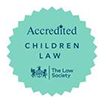The law protects individuals from discrimination because of their disability; age; sex; sexual orientation; gender reassignment; race or nationality; religion or belief; marriage/civil partnership; pregnancy and maternity. The Equality Act 2010 lays out the provisions making it unlawful to discriminate or treat anyone unfairly because of one of the “protected characteristics” as detailed in the Act. Our expert discrimination solicitors can provide you with the advice you need where you think there may be a discrimination issue in your workplace.
Our solicitors regularly act for businesses and organisations in discrimination and harassment cases, and provide clear and pragmatic advice throughout the entire process, ensuring you make the choices that will allow you to achieve the best outcome possible. If you wish to know more about how we can help, give our solicitors a call to discuss your case, or get in touch via our online contact form.
As an employer, is it important that you are aware of the discrimination laws that apply to ensure your business is compliant. This is an especially complex area of the law, but the support and advice of our Equality Act specialists can help you avoid discrimination issues in your workplace – through robust practices and policies – and deal effectively with any disputes that may arise. If a matter does escalate, we will attempt to settle out of court, as this is the most cost-effective and least disruptive way to resolve an employment dispute. Where a settlement is not possible, however, we will provide practical and focused advice during tribunal proceedings.
Direct & Indirect Discrimination
In terms of the Equality Act and the law of England & Wales, discrimination can be either direct or indirect. Direct discrimination is where a person is treated less favourably because of a protected characteristic covered by the Equality Act 2010. It can also be because of their association with someone who has a protected characteristic (i.e. if someone is treated less favourably because their partner is transgender). This is also known as discrimination by association. A person can also be treated less favourably because they were thought to have a protected characteristic (perception discrimination). Indirect discrimination is also unlawful and involves actions or policies that do not overtly discriminate but have the effect of creating a disadvantage to persons with a protected characteristic. Unless the action can be objectively justified, this will amount to indirect discrimination. Indirect discrimination can involve all characteristics except pregnancy and maternity.
There are situations where direct discrimination is allowable. In the workplace, direct discrimination is allowable in certain cases; a “genuine occupational requirement” must exist for the direct discrimination to be lawful, however, the requirement must pursue a legitimate aim. An example of this would be where there was a requirement for a female to work as a female changing room assistant; or in religious careers where the employer is part of an organised religion, requiring certain protected characteristics to be barred from consideration for employment.
Harassment & the Law
The creation of an offensive, intimidating, hostile, degrading or humiliating environment, or violation of a person’s dignity, where it is relevant to a protected characteristic, is also covered by the Equality Act, and is defined as harassment. The behaviour does not need to be directed to a person with the particular personal characteristic; it is only necessary for them to find the behaviour offensive. Harassment applies to all the protected characteristics defined in the Act, except pregnancy, maternity, marriage and civil partnership.
Victimisation & the Law
The Equality Act also covers victimisation. This occurs when an individual is treated badly because they have done a “protected act”. It can also be where the person intends to do a protected act or where they are suspected of doing a protected act. Protected acts include taking an action, or supporting an action taken, for the purpose of the Act. For example, victimisation can be claimed where someone has given evidence to support a colleague’s claim for discrimination.
Discrimination in the Workplace
Discrimination in the workplace can occur in a variety of ways, from differences in pay and benefits, or where promotion opportunities or redundancies arise. Employees can also be discriminated against with regards to training opportunities, and even in differences in employment contract terms. There is no minimum period of employment necessary for a discrimination claim to be valid. Protection from discrimination starts from the point the role is advertised, to after the person has left the position, such as in writing a reference. It is very important that employers are careful they are not discriminating against any employee because of a protected characteristic. Also, where, for example, an employee has a disability, it is unlawful for the employer to fail to make reasonable adjustments to allow the person to do their job effectively, and the employer can lawfully treat the disabled person more favourably by making reasonable adjustments.
If you are an employer, our solicitors can help you where a discrimination issue has been raised. We also help businesses and organisations to ensure their processes, policies and decision-making is compliant with the Equality Act. Let us help you get on track, so you can focus on running your business. Give our solicitors a call today to see how we can help you.
Contact our Discrimination Solicitors London
Scott-Moncrieff & Associates is one of the UK’s most respected law firms, providing high-quality legal advice to clients throughout England & Wales. We are committed to delivering skilled legal services at an affordable cost. For over 30 years, we have provided innovative and successful legal solutions for people, companies and organisations. Whether through private or public funding, we are dedicated to working for people who need genuine expertise at times of urgency.
Our solicitors serve clients all over England, including in London, Bristol, Milton Keynes, Kent, Wirral, Merseyside, Manchester and Cheshire. For more information get in touch via our online contact form or call our team now on 0203 811 6088.














